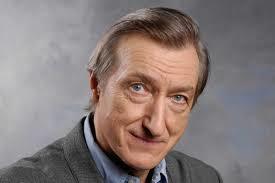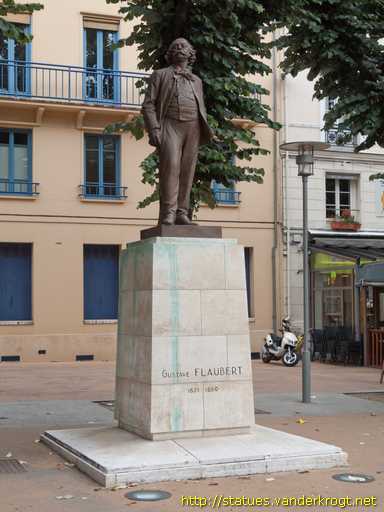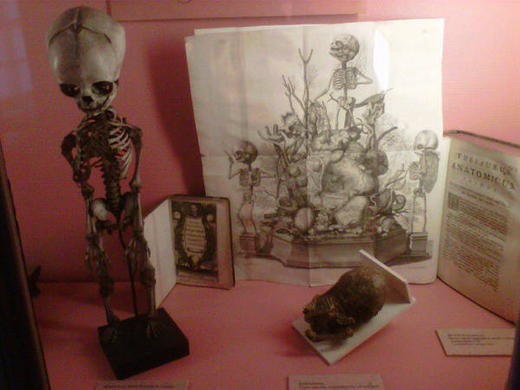The Bowie Book Club discussion

This topic is about
Flaubert's Parrot
Sept 2016 - Flaubert's Parrot
>
General comments, background and resources
date newest »
newest »
 newest »
newest »
 A bit about the author of the book:
A bit about the author of the book:Julian Barnes

Julian Patrick Barnes (born 19 January 1946) is an English writer. Barnes won the Man Booker Prize for his book The Sense of an Ending (2011), and three of his earlier books had been shortlisted for the Booker Prize: Flaubert's Parrot (1984), England, England (1998), and Arthur & George (2005). He has also written crime fiction under the pseudonym Dan Kavanagh. In addition to novels, Barnes has published collections of essays and short stories.
In 2004 he became a Commandeur of L'Ordre des Arts et des Lettres. His honours also include the Somerset Maugham Award and the Geoffrey Faber Memorial Prize. (Source: Wikipedia)


 all by
all by
 Julian Barnes
Julian BarnesOfficial web site of the author
 Some interesting articles on Flaubert's Parrot and Julian Barnes:
Some interesting articles on Flaubert's Parrot and Julian Barnes:The Guardian's series on literary criticism starts with an article on this book:
https://www.theguardian.com/books/200...
The New York Times - "Obsessed With the Hermit of Croisset"
https://www.nytimes.com/books/01/02/2...
Newyorker.com - "Julian Barnes, the Booker, and the Phrase He Most Regrets Writing"
http://www.newyorker.com/books/double...
Dactyl Review - A review of Flaubert’s Parrot by Julian Barnes
https://dactylreview.com/2013/05/19/f...
Flaubert's Parrot and the Masks of Identity: Between Postmodernism and the “New Humanism”
http://www.academia.edu/1823847/Flaub...
Flaubert's Parrot, Agee's Swan: From "Reality Effect" to "Fiction Effect"
https://www.jstor.org/stable/30225953...
"Madame Bovary, c'est moi!": Julian Barnes's "Flaubert's Parrot" and Sexual "Perversion"
https://www.jstor.org/stable/25733406...
Inside the Writer’s Room, the Artist’s Studio and Flaubert’s Parrot
http://link.springer.com/chapter/10.1...
Loulou, the Holy Parrot
http://www.shmoop.com/a-simple-heart/...
Flaubert's Parrot Authors View
https://www.youtube.com/watch?v=zR-bl...
Loving The Sense of An Ending by Julian Barnes – The Sunday Salon
https://andilit.com/2012/03/11/loving...
An Evening with Julian Barnes
https://dontreadtoofast.com/2014/11/0...
Revisiting Noah's Ark in Julian Barnes' A History of th World in 10 ½ chapters
http://www.degruyter.com/downloadpdf/...
 Statue of Gustave Flaubert in Rouen
Statue of Gustave Flaubert in Rouen
Bronze statue. Author: Léopold Bernstamm - (Riga 1859 - Paris 1939), Russian sculptor
The original statue was in 1907 placed at rue Thiers and destroyed in 1941. A new cast was placed in 1965 at the present location. (Source: Van der Krogt)
 Musee Flaubert et d'Histoire de la Medecine in Rouen, France
Musee Flaubert et d'Histoire de la Medecine in Rouen, FranceContributed by TheWickerWoman

Located in a former hospital that was also the birthplace of famed author Gustave Flaubert, the Musée Flaubert et d'Histoire de la Medecine seems to have very little to do with the writer behind Madame Bovary and everything to do with grotesque medical history.
Gustave Flaubert was born in 1821 to a father who was the directing surgeon of the hospital where the birth took place. This would seem to be the extent of Flaubert's association to the museum that now resides in the historic space since, other than a few scant artifacts from the author's life, the rest of the collection consists of strange medical relics and equipment. The strangeness of 18th and 19th century medicine is on full display in the museum, containing such items as a bed for six patients, mummified heads of hanging victims, and even a rare stuffed obstetrical mannequin which was used to help educate people on the birthing process. In addition there is also a completely restored version of an apothecary's shop and of course the preserved room in which Flaubert was born.
Today a medicinal herb garden adjoins the house, a feature which also has nothing to do with the famed author who was born their. As a pilgrimage site for lovers of literature, the Musee Flaubert et d'Histoire de la Medecine may be a bit disappointing, but for lovers of the macabre history of medicine Flaubert's name has kept this treasure trove alive. (Source: Atlas Obscura)
Museum Address:
51 Rue de Lecat
Rouen, 76000
France
 Croisset - Flaubert's Pavilion
Croisset - Flaubert's Pavilion
Of the property where Gustave Flaubert lived and worked from 1843 until his death, all that remains is this garden pavilion facing a factory-littered Rouen landscape. In the last century, however, Flaubert's house was situated in a particularly agreeable location, on a hillside overlooking the Seine, and a watercolour by Rochegrosse (on show in the museum) gives a picture of a large 18th century house topped with a double-sloped slate roof surmounted by a pediment.
Dr Flaubert, father of the writer, acquired in 1843 this house which had belonged to the Benedictine monks of Saint-Ouen, after Flaubert senior's Deville-lès-Rouen home had been expropriated to make way for the Paris-Rouen railway line. Legend has it that Abbot Prévost wrote Manon Lescaut in Flaubert's future house. After the death of his father, Flaubert continued to spend the summer months in this house accompanied by his mother and his sister; he established himself here definitively in 1851. His study was on the first floor and overlooked the garden and the Seine. It was here that the novelist wrote most of his major works.
Flaubert never worked in the Croisset pavilion, but he often went there in the company of his guests, and he would go there at night alone to contemplate the Seine by moonlight. A quotation reproduced on the façade of the pavilion recalls his nocturnal visits: “I have somewhere a white house; I left the walls covered in roses and there is a pavilion on the banks of the Seine; a stray honeysuckle grows on the iron balcony. At one o'clock in the morning in July, by the moonlight, it is a good place to come and watch the fishing”. Many of the writer's personal possessions are on show in the pavilion today: notably, portraits, busts, photographs by Nadar, an armchair, the famous parrot of Un Coeur Simple (A Simple Heart), an inkwell and goose quills, a writing case, etc. It was on a path bordered with lime trees leading to the house that Flaubert went to declaim the texts which he found so painful to compose: he named this place his “gueuloir” (shouting ground).
A few kilometers from Croisset, Rouen also has memorabilia relating to the writer and is the ideal place to re-read Madame Bovary. Flaubert was born in this city in 1821, in the former Hospital of Saint-Louis and Saint-Roch where his father was a surgeon. Today transformed into a Flaubert Museum and Museum of the History of Medicine, the hospital has on show the room in which the writer was born and has an exhibition of items relating to Flaubert's childhood. Rouen was also Flaubert's final resting place, in that he was buried in the municipal cemetery there. (Source:Napoleon.org)
Address:
18, quai Gustave Flaubert
DIEPPEDALLE-CROISSET 76380 Canteleu, France
 Félicité Sleeping With a Parrot (Illustration for 'A Simple Heart' of Gustave Flaubert), 1974 by David Hockney
Félicité Sleeping With a Parrot (Illustration for 'A Simple Heart' of Gustave Flaubert), 1974 by David Hockney
Source: Artsy.net
 Julian Barnes' statement on novels and writing:
Julian Barnes' statement on novels and writing:'Writers should have the highest ambition: not just for themselves, but for the form they work in. Flaubert once rebuked Louise Colet for having the love of art yet lacking 'the religion of art': she fancied its rituals, the vestments and the incense, but did not finally believe in its revealed truths. I am a writer for an accumulation of lesser reasons (love of words, fear of death, hope of fame, delight in creation, distaste for office hours) and for one presiding major reason: because I believe that the best art tells the most truth about life. Listen to the competing lies: to the tatty rhetoric of politics, the false promises of religion, the contaminated voices of television and journalism. Whereas the novel tells the beautiful, shapely lies which enclose hard, exact truth. This is its paradox, its grandeur, its seductive dangerousness. Two famous deaths have been intermittently proclaimed for some time now: the death of God and the death of the novel. Both are exaggerated. And since God was one of the fictional impulse's earliest and finest creations, I'll bet on the novel - in however mutated a version - to outlast even God.'
(Source: British Council)
 Books on Julian Barnes (I'll add more if/when I find them)
Books on Julian Barnes (I'll add more if/when I find them)(no image) Language, History, and Metanarrative in the Fiction of Julian Barnes by Bruce Sesto (no photo)
 by Merritt Moseley (no photo)
by Merritt Moseley (no photo) by
by
 Julian Barnes and Vanessa Guignery (no photo)
Julian Barnes and Vanessa Guignery (no photo) by Vanessa Guignery (no photo)
by Vanessa Guignery (no photo) Vanessa Guignery (no photo)
Vanessa Guignery (no photo) by Joseph Brooker (no photo)
by Joseph Brooker (no photo)
Books mentioned in this topic
Literature of the 1980s: After the Watershed: Volume 9 (other topics)Conversations with Julian Barnes (other topics)
Novelists in the New Millennium: Conversations with Writers (other topics)
The Fiction of Julian Barnes (other topics)
Language, History, and Metanarrative in the Fiction of Julian Barnes (other topics)
More...
Authors mentioned in this topic
Joseph Brooker (other topics)Bruce Sesto (other topics)
Merritt Moseley (other topics)
Julian Barnes (other topics)
Vanessa Guignery (other topics)
More...



PLEASE, KEEP IN MIND: do not give any spoilers! The discussion about particular segments of the story was divided, so the members of the group can make comments as they move further on the reading, without the risk of encountering spoilers in the middle of the conversations.